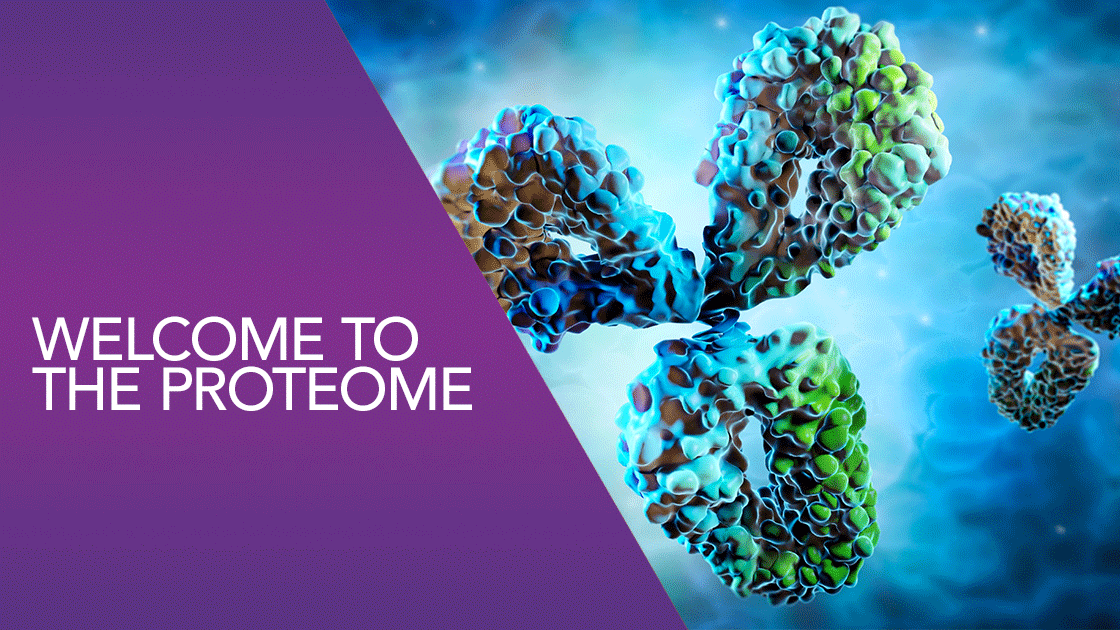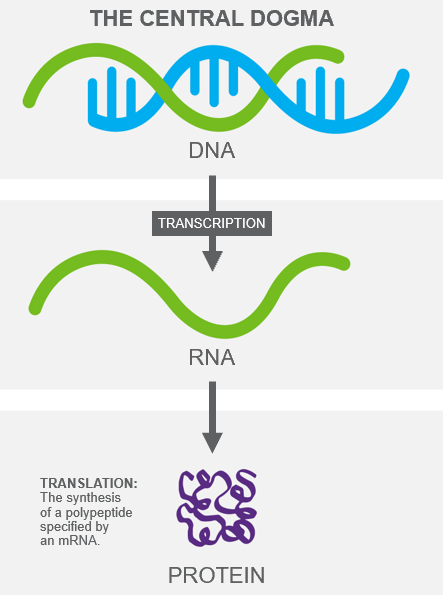

Welcome to the Proteome

Proteomics is Detecting More Proteins and Leading to OEM Product Development
Biology is rooted in the Central Dogma—the flow of genetic information within a biological system—DNA, RNA and Proteins. During the process, DNA is “transcribed” to RNA and RNA is “translated” to synthesize functional proteins.
Central Dogma of Biology:

Great progress has been made in understanding the genetic underpinning of disease thanks to past and current technological advancements in the field of Genomics. Proteomics is bringing new tools to market; allowing researchers to achieve the same understanding for proteins.
Why are Proteins Important, but Hard to Study?
Proteins are essential to the functioning of our cells. They both cause and treat diseases. Proteins are hard to analyze since their three-dimensional structure can be hard to infer from sequence alone. They can also be hard to extract from cells as they are embedded in membranes or multi-protein complexes. Furthermore, proteins may act indirectly to influence diseases. These factors make finding a specific protein or set of proteins like finding a needle in a haystack.
The results from traditional next generation DNA testing are not complete—there are missing pieces—key proteins that are critical to detecting and treating diseases. With Proteomics researchers can characterize more proteins, which gives greater insight into understanding disease evolution and progression.
What is Proteomics?
Proteomics is the systematic, large-scale analysis of proteins. It’s based on the concept of the proteome—a complete set of proteins produced by an organism or cell under certain conditions. Through a proteomics approach, researchers can detect more proteins. The more proteins they have, the more holistic view they get to detect and treat diseases.
The result? Proteomics helps lead researchers to clinical trials which will create drugs that improve lives around the globe. Researchers will be able to better treat cancer, cardiovascular disease, infectious diseases, neurological disorders and more.
The Time to Find an OEM Proteomics Provider is Now
Proteomics is the fastest growing sector in the Multiomics space. Proteomics enables limitless applications to yield new scientific insights. That means new product development, and lots of it. Companies looking to pivot from Next Generation Sequencing to protein detection, screening, and characterization can’t afford to wait.
Join the Proteome Revolution
We know being first to market is important and we’ll help get you there. IDEX Health & Science engineers have over 60 years of expertise to help you get your Proteomics applications to market the fastest.
Learn more about our OEM capabilities within the proteomics space